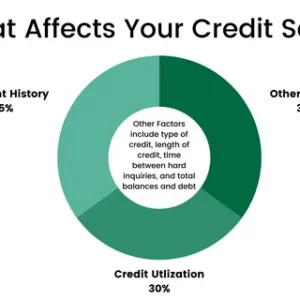
 Introduction: A New Era in Money Transfers
Introduction: A New Era in Money Transfers
Every year, millions of Africans in the diaspora send money back home to support loved ones, build houses, or invest in businesses. For decades, banks dominated this process—but not anymore. Today, fintech apps are taking over, offering cheaper, faster, and friendlier ways to transfer funds.
If you’ve ever wondered why so many Africans in the USA and Canada now ditch banks for fintech apps, the reasons might surprise you. Let’s dive into this financial revolution.
The Pain of Using Banks for Remittances
Traditional banks may appear secure, but they often frustrate diaspora senders with:
- High fees for cross-border transfers.
- Unfavorable exchange rates that cut into recipients’ funds.
- Long waiting periods, sometimes several business days.
- Rigid requirements like in-person visits, endless forms, or proof of source of funds.
For many hardworking Africans abroad, these hurdles feel like unnecessary punishment when all they want is to help family quickly.
The Rise of Fintech Apps: Convenience at Your Fingertips
Fintech platforms such as Remitly, Wise, and Sendwave have flipped the script by prioritizing customer needs. They provide:
- Mobile-first transfers—send money directly from your phone in minutes.
- Transparent fees—no hidden charges; you see exactly what will be deducted.
- Better exchange rates—apps compete to give more value per dollar.
- 24/7 availability—send at midnight or during your lunch break.
Unlike banks, fintech companies design services around speed, accessibility, and trust—values that resonate deeply with the diaspora community.
Why Diaspora Africans Trust Fintech Apps Over Banks
Trust is everything when moving money. Diaspora Africans lean toward fintech apps because:
- Social proof matters: people rely on reviews and personal recommendations more than glossy bank ads.
- Community-driven adoption: once one person in a family tries a fintech app, others quickly follow.
- No intimidation factor: fintech apps avoid the bureaucratic, formal vibe banks often create.
In essence, fintech apps are more human, relatable, and easier to use.
The Cost Comparison: Banks vs. Fintech Apps
Numbers don’t lie. Look at the difference between average bank fees and fintech app charges:
| Service Type | Average Bank Fee (Canada/USA) | Average Fintech Fee | Exchange Rate Margin | Speed of Transfer |
|---|---|---|---|---|
| Traditional Bank | $25–$50 per transfer | $2–$10 per transfer | 3–6% less favorable | 3–7 business days |
| Fintech App (Wise, Remitly, Sendwave) | $2–$10 flat fee | $0–$5 in many cases | Market rate + 0.5–1% | Instant–24 hours |
This comparison shows why fintech has become the obvious winner. Paying $40 for a $300 transfer feels unfair when apps can deliver more money for less.
Emotional Drivers: Why the Diaspora Makes the Switch
It’s not just about money—it’s about peace of mind. Diaspora Africans prefer fintech apps because:
- They can see the status instantly—“Money Delivered” feels reassuring.
- Recipients get funds faster, avoiding delays for emergencies.
- They feel empowered, not trapped by outdated systems.
Imagine a mother in Toronto sending money to her child’s tuition in Lagos. Knowing it arrives within minutes rather than days is priceless.
Fintech Apps Speak the Language of the Diaspora
Banks often market broadly, but fintech apps create culturally specific services:
- Interfaces in English, French, and sometimes African languages.
- Customer service that understands diaspora pain points.
- Promotions tied to African holidays and celebrations.
For example, some apps offer zero fees during Christmas and Easter, when remittances peak. This emotional connection strengthens loyalty.
The Role of Regulation: Safety Concerns Addressed
Skeptics once worried about security. However, fintech apps in Canada and the USA now operate under strict regulations. Platforms like Wise are licensed money transmitters and comply with Know Your Customer (KYC) rules.
According to World Bank remittance reports, regulated fintech firms are not only safe but also essential to lowering global transfer costs.
This growing legitimacy has erased much of the fear that used to keep people tied to banks.
Technology and Speed: Diaspora-Friendly Innovation
Banks are often slow to innovate, but fintech thrives on agility.
- Mobile wallets integrate directly with African services like M-Pesa.
- Biometric verification reduces fraud.
- AI-driven compliance speeds up approvals without human bottlenecks.
A fintech app can deploy updates overnight, while a bank might take years to modernize its legacy system.
The Human Side: Stories of Trust
Consider Kwame, a Ghanaian living in New York. He once waited five days for his bank to process a transfer. Now, using Remitly, his mother receives funds in under 10 minutes.
Or take Chioma in Toronto, who switched to Sendwave because of free transfers and better rates. She convinced her entire family to use it, turning one user into ten.
These real-life stories mirror countless others and explain fintech’s meteoric rise.
Banks Are Fighting Back—But Are They Too Late?
Banks aren’t blind to the exodus. They’ve started:
- Creating mobile apps.
- Reducing fees for select corridors.
- Partnering with fintech firms for co-branded services.
Still, their pace is slow, and fintech continues to attract younger, tech-savvy senders who prioritize ease over legacy loyalty.
The Diaspora Mindset: Beyond Just Transfers
For diaspora Africans, remittances are about more than sending money—they are about identity, belonging, and responsibility. Fintech apps align perfectly with this mindset by offering:
- Transparency—senders know exactly what’s happening.
- Flexibility—money can go to mobile wallets, bank accounts, or cash pickups.
- Empathy—apps market themselves as partners in supporting families back home.
This emotional alignment cements loyalty far deeper than banking slogans ever could.
External Economic Forces Accelerating the Shift
Factors like inflation, currency volatility, and high living costs in North America push senders to maximize every dollar.
A Forbes analysis of fintech disruption notes that fintech companies thrive in such contexts, offering more cost-effective alternatives when people need them most.
In simple terms: fintech grows because it solves problems banks can’t—or won’t—address quickly.
Conclusion: Fintech is Here to Stay
The choice between banks and fintech apps is no longer difficult for diaspora Africans. It’s about value, speed, trust, and cultural connection.
While banks will always have a place, fintech apps have become the heartbeat of remittances from Canada and the USA to Africa. They’re not just changing how money moves—they’re transforming how people connect with home.
FAQs
1. Are fintech apps safe for sending money to Africa?
Yes, most are licensed, regulated, and use advanced encryption, making them as safe—if not safer—than banks.
2. Which fintech apps are most popular for Africans abroad?
Apps like Wise, Remitly, Sendwave, and WorldRemit dominate among diaspora Africans in Canada and the USA.
3. Why do fintech apps offer better exchange rates than banks?
They bypass legacy costs and use real-time currency markets, giving senders more value per dollar.
4. Can fintech apps deliver money directly to mobile wallets in Africa?
Yes, many integrate with wallets like M-Pesa, Paga, or Airtel Money, ensuring instant access.
5. Will banks eventually catch up to fintech apps?
Banks are trying, but fintech’s agility and customer-first approach give them a strong lead.






